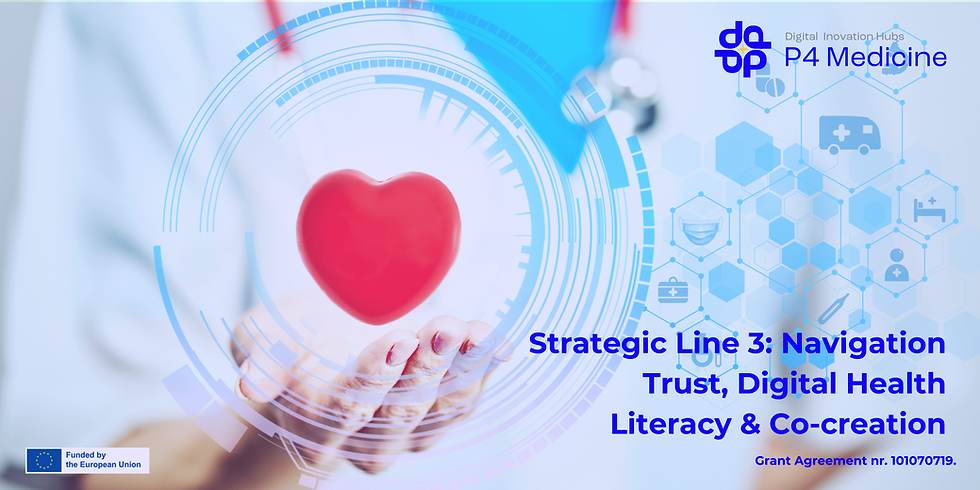The Strategic Line 3. Navigation Trust, Digital Health Literacy & Co-creation
- adelabernad
- Apr 25, 2024
- 2 min read
The SL3 emphasizes the crucial role of digital trust in healthcare, focusing on the secure and reliable management of technologies and data. This trust is vital for incorporating and using new healthcare solutions effectively. It advocates for healthcare professionals' engagement in networking to build trust and highlights the significance of collaborative, patient-centered innovation through co-creation testing and living labs led by EDIHs. These initiatives promote the adoption of modern practices and ensure innovations are clinically relevant. EDIHs serve as a central point for advancing healthcare by facilitating collaboration, knowledge sharing, and data exchange in a secure environment, essential for the future of personalized medicine.

The Strategic Line 3 consists of two Flagship Initiatives:
Flagship Initiative 1: Building on Trust & Digital Health Literacy
This initiative aims to improve trust and digital health literacy through collaboration among healthcare institutions, professionals, and the digital innovation community. It includes the involvement of healthcare institutions in the innovation process via joint research, pilot testing of new technologies, and development projects. Additionally, it proposes the use of a neutral platform for sharing success stories and best practices to foster communication. An EDIH will support knowledge sharing with interactive training and workshops on digital literacy, along with forums for open dialogue between healthcare workers and industry stakeholders to understand diverse perspectives and needs.
Flagship Initiative 2: Establishing Hospital Co-creation Testing Services
This initiative aims to create a strong co-creation testing framework in hospitals, that fosters innovation and collaboration between healthcare workers, SMEs, and EDIH-coordinated Living Labs. To achieve this, the strategy includes forming partnerships with hospitals and healthcare professionals, organizing information sessions, and attending medical conferences to introduce co-creation testing. Developing the framework involves establishing clear processes for idea submission, feedback, and iterative design with support from healthcare professionals and patients. The final step is to document and share successful innovations through EDIH networks, demonstrating the co-creation framework's effectiveness and promoting its wider application.



Comments